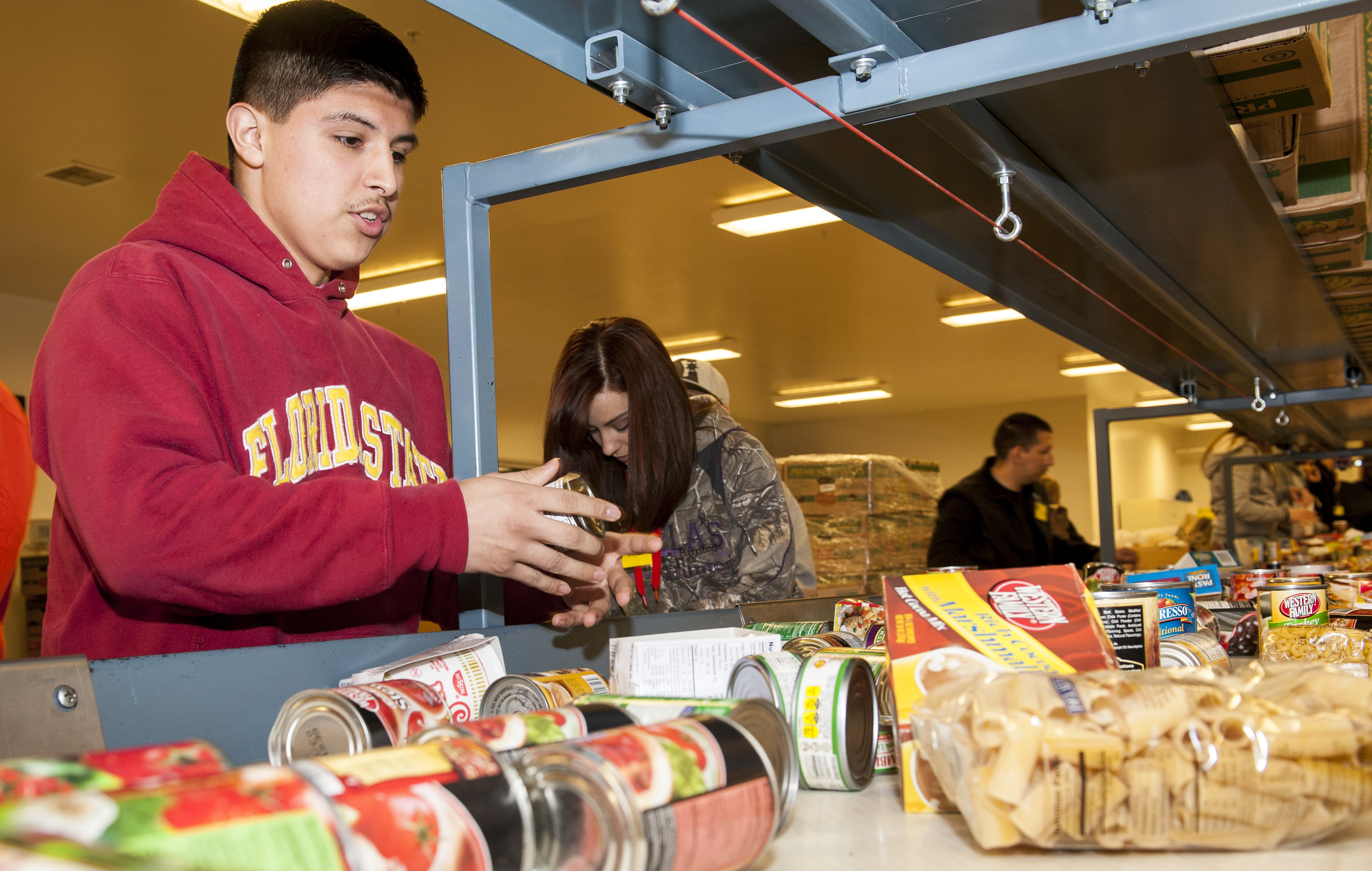The government is guilty of “absolutely shameful” inaction in ensuring the UK’s most vulnerable have access to food in the event of a no-deal Brexit, a report has found.
Around 9,000 frontline charities who provide food to vulnerable people, including the homeless and domestic abuse survivors, could have to fork out up to £5m-a-month to make up for a decline in food donations due to no deal-triggered supply chain disruptions.
While public-sector bodies such as schools and hospitals, who provide food to the 1.5m pupils eligible for free meals and the tens of thousands of people staying in hospital beds, may struggle to meet mandatory nutritional standards.
These projections are outlined in a briefing paper produced by agriculture charity Sustain. It is urging the government to set up a hardship fund giving emergency cash grants to frontline charities, among other measures, as the clock ticks down to the 31 October deadline to leave the European Union.
But a government spokeswoman told EachOther that the UK already has “highly-resilient food supply chain” and a food industry that is “well versed in dealing with scenarios that can impact food supply”.
She added that the government is meeting regularly with the industry to make sure it is fully prepared for leaving the EU on 31 October.”
[…] Here we are, just weeks from a possible no-deal Brexit cliff-edge, and no detail has been published, with no funds allocated. This inaction is absolutely shameful.
Kath Dalmeny, chief executive Sustain
“We are dismayed at the government’s lack of attention to the impact of a no-deal Brexit on food for the most vulnerable people in our society – old people, those living with long-term illness or disabilities, people living in care and children in low-income families,” said Sustain chief executive Kath Dalmeny.
The UK’s approach contrasts with that of other European countries, who have declared Brexit a “natural disaster” in order to access contingency funds, she added. She laments that no progress appears to have been made on former work and pensions secretary Amber Rudd’s talk of a “hardship fund” to help the vulnerable with accessing food after Brexit.
“[Yet] here we are, just weeks from a possible no-deal Brexit cliff-edge, and no detail has been published, with no funds allocated. This inaction is absolutely shameful,” she added. “Over the last nine months I have briefed, written to or spoken with: 45 local resilience forums, 33 London boroughs, nine regional council executives of large local authorities, 21 Secretaries of State, and seven government departments.
“The message is that securing food supplies for vulnerable people is always somebody else’s responsibility.”
No-Deal Brexit: What Will Happen To Food Supplies?

Duchy of Lancaster Michael Gove is the minister responsible for no-deal Brexit planning. Image Credit: Flickr.
Earlier this month, the government was forced by MPs to reveal its “reasonable worst case planning assumptions” of what would happen in the event of no-deal Brexit. The secret five-page document, code-named Operation Yellowhammer, outlines 20 national concerns – ranging from public disorder and unrest to shortages in medicines.
In the papers, the Department for the Environment, Food and Rural Affairs (Defra) writes that “certain types of fresh food supply will decrease”.
It continues: “Critical dependencies for the food supply chain (such as key input ingredients, chemicals and packaging) may be in shorter supply. In combination, these two factors will not cause an overall shortage of food in the UK but will reduce availability and choice of products and will increase price, which could impact vulnerable groups.
“The UK growing season will have come to an end and the [agri-food] supply chain will be under increased pressure at the time of year, due to preparations for Christmas, which is the busiest time of year for food retailers. Government will not be able to fully anticipate all potential impacts to the [agri-food] chain. There is a risk that panic buying will cause or exacerbate food supply disruption.”
The British Retail Consortium (BRC) also reacted to the Yellowhammer documents with dismay.
“A no deal Brexit in November represents the worst possible timing for the retail industry and the consumers it serves,” said BRC chief executive Helen Dickinson.
“Warehousing availability will be limited as retailers prepare for Black Friday and Christmas, many fresh fruit and vegetables will be out of season in the UK, and imports will be hampered by disruption through the Channel Straits that could reduce flow by up to 60 percent for up to three months.”
What About Human Rights?
The UK has ratified the International Covenant of Economic Social and Cultural Rights which, among other treaties, obliges the government to ensure all its citizen have access to adequate food.
However it has not been enshrined in UK law and so cannot be enforced in local courts.
Nor is the UK obliged to respond to any complaints that are made to the Geneva-based committee responsible for enforcing the ICESCR, because it has not signed the “optional protocol”.
What Does The Government Say?
A government spokeswoman said: “We already have a highly-resilient food supply chain, and a food industry that is well versed in dealing with scenarios that can impact food supply. Half of the food we eat is produced right here in the UK and consumers will continue to have access to a wide range of high quality food.
“We are meeting regularly with the industry to make sure they are fully prepared for leaving the EU on 31 October.”
Want to know more? Why not read:
- Our explainer on the right to food
- Why Scotland must lead the way in enshrining the right to food
- Brexit poses five ‘serious’ human rights threat, according to Amnesty International







